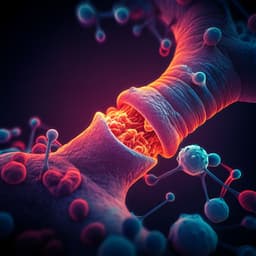
Medicine and Health
COVID-19 mRNA vaccine-mediated antibodies in human breast milk and their association with breast milk microbiota composition
S. Zhao, K. Y. W. Lok, et al.
Explore the intriguing findings of a study that analyzed how the SARS-CoV-2 mRNA vaccine influences breast milk microbiota and its correlation with antibody levels. This groundbreaking research, conducted by a team of experts including Shilin Zhao, Kris Y. W. Lok, and others, has unveiled dynamic shifts in microbiota post-vaccination, revealing potential markers linked to antibody levels.
Related Publications
Explore these studies to deepen your understanding of the subject.







